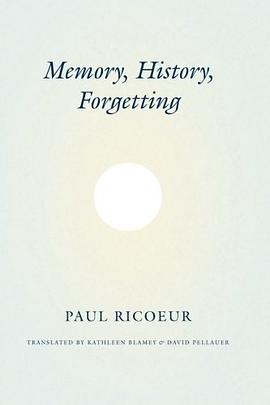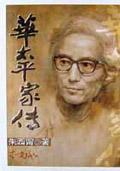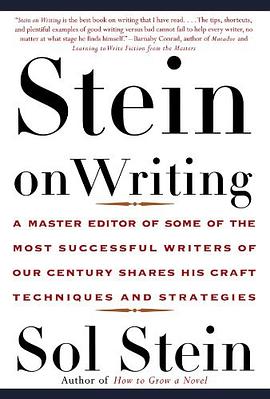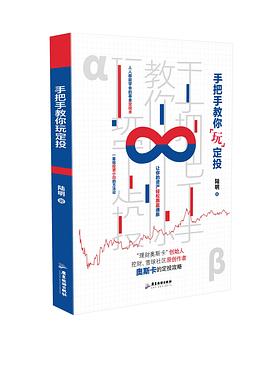Memory, History, Forgetting
内容简介
Why do major historical events such as the Holocaust occupy the forefront of the collective consciousness, while profound moments such as the Armenian genocide, the McCarthy era, and France's role in North Africa stand distantly behind? Is it possible that history "overly remembers" some events at the expense of others? A landmark work in philosophy, Paul Ricoeur's Memory, History, Forgetting examines this reciprocal relationship between remembering and forgetting, showing how it affects both the perception of historical experience and the production of historical narrative.
Memory, History, Forgetting, like its title, is divided into three major sections. Ricoeur first takes a phenomenological approach to memory and mnemonical devices. The underlying question here is how a memory of present can be of something absent, the past. The second section addresses recent work by historians by reopening the question of the nature and truth of historical knowledge. Ricoeur explores whether historians, who can write a history of memory, can truly break with all dependence on memory, including memories that resist representation. The third and final section is a profound meditation on the necessity of forgetting as a condition for the possibility of remembering, and whether there can be something like happy forgetting in parallel to happy memory. Throughout the book there are careful and close readings of the texts of Aristotle and Plato, of Descartes and Kant, and of Halbwachs and Pierre Nora.
A momentous achievement in the career of one of the most significant philosophers of our age, Memory, History, Forgetting provides the crucial link between Ricoeur's Time and Narrative and Oneself as Another and his recent reflections on ethics and the problems of responsibility and representation.
?His success in revealing the internal relations between recalling and forgetting, and how this dynamic becomes problematic in light of events once present but now past, will inspire academic dialogue and response but also holds great appeal to educated general readers in search of both method for and insight from considering the ethical ramifications of modern events. . . . It is indeed a master work, not only in Ricoeur?s own vita but also in contemporary European philosophy.??Library Journal
?Ricoeur writes the best kind of philosophy?critical, economical, and clear.?? New York Times Book Review
......(更多)
作者简介
保罗·利科(Paul Ricoeur),法国著名哲学家、当代最重要的解释学家之一。曾任法国斯特拉斯堡大学、巴黎大学、南特大学教授,并为美国芝加哥大学、耶鲁大学,加拿大蒙特利尔大学等大学客座教授。
1913年2月27日,利科生于法国南部小镇Valence的一个新教家庭。他一生颇为坎坷,几乎历经20世纪所有重大事件。一战中,他成了战争孤儿;二战中,他成了波兰战俘营里的囚徒。二战结束后,利科回到巴黎继续求学,在高校任教不久,他又被卷入1968年法国著名的“五月风暴”。他心灰意冷,辞去教职,远走异乡,长期在美国芝加哥大学任职,且在欧洲本土之外声誉鹊起。直到上世纪80年代法国知识界才意识到他们错过了一位大哲,开始给予利科以一个思想家应有的地位:他先后被授予利奥波德·卢卡斯奖、斯图加特的黑格尔奖、法国的学术奖、道德与政治科学院奖。利科担任了巴黎现象学诠释学研究中心主任和法国国际哲学学会会长。退休之后,他还获瑞士的巴尔赞奖(1999),日本的京都奖(2000),保罗四世教皇奖(2003)等等,尤其是2004年被美国国会图书馆授予有人文学科领域的诺贝尔奖之称的克鲁格人文与社会科学终身成就奖。评委会认为:利科的成就在于“汲取了西方哲学的全部传统来探索和解释普遍的问题:什么是自我?记忆是如何被运用和滥用的?责任的本质是什么?”
尽管利科一生著述颇丰,但有人说,他的写作和思考始终在回应一个古老的命题:一个人如何在伦理生活中有确信地去行动。
2005年5月20日,利科在睡梦中安详辞世。
......(更多)
目录
CONTENTS
Preface xv
PART I ON MEMORY AND RECOLLECTION 1
Chapter 1 Memory and Imagination 5
Reading Guidelines 5
The Greek Heritage 7
˜ Plato: The Present Representation of an Absent Thing 7
˜ Aristotle: “Memory Is of the Past” 15
A Phenomenological Sketch of Memory 21
Memories and Images 44
Chapter 2 The Exercise of Memory: Uses and Abuses 56
Reading Guidelines 56
The Abuses of Artificial Memory: The Feats of
Memorization 58
The Abuses of Natural Memory: Blocked Memory,
Manipulated Memory, Abusively Controlled Memory 68
˜ The Pathological-Therapeutic Level: Blocked Memory 69
˜ The Practical Level: Manipulated Memory 80
˜ The Ethico-Political Level: Obligated Memory 86
Chapter 3 Personal Memory, Collective Memory 93
Reading Guidelines 93
The Tradition of Inwardness 96
˜ Augustine 96
˜ Locke 102
˜ Husserl 109
The External Gaze: Maurice Halbwachs 120
Three Subjects of the Attribution of Memories: Ego, Collectives, Close
Relations 124
PART II HISTORY, EPISTEMOLOGY 133
Prelude History: Remedy or Poison? 141
Chapter 1 The Documentary Phase: Archived Memory 146
Reading Guidelines 146
Inhabited Space 147
Historical Time 153
Testimony 161
The Archive 166
Documentary Proof 176
Chapter 2 Explanation/Understanding 182
Reading Guidelines 182
Promoting the History of Mentalities 188
Some Advocates of Rigor: Michel Foucault, Michel de Certeau,
Norbert Elias 200
Variations in Scale 209
From the Idea of Mentality to That of Representation 216
˜ The Scale of Efficacy or of Coerciveness 218
˜ The Scale of Degrees of Legitimation 221
˜ The Scale of Nonquantitative Aspects of Social Times 223
The Dialectic of Representation 227
Chapter 3 The Historian’s Representation 234
Reading Guidelines 234
Representation and Narration 238
Representation and Rhetoric 248
The Historian’s Representation and the Prestige of the Image 261
Standing For 274
PART III THE HISTORICAL CONDITION 281
Prelude The Burden of History and the Nonhistorical 287
Chapter 1 The Critical Philosophy of History 293
Reading Guidelines 293
“Die Geschichte Selber,” “History Itself ” 296
“Our” Modernity 305
The Historian and the Judge 314
Interpretation in History 333
Chapter 2 History and Time 343
Reading Guidelines 343
Temporality 352
˜ Being-toward-Death 352
˜ Death in History 361
Historicity 369
˜ The Trajectory of the Term Geschichtlichkeit 370
˜ Historicity and Historiography 376
Within-Timeness: Being-“in”-Time 382
˜ Along the Path of the Inauthentic 382
˜ Within-Timeness and the Dialectic of Memory and History 384
Memory, Just a Province of History? 385
Memory, in Charge of History? 389
The Uncanniness of History 393
˜ Maurice Halbwachs: Memory Fractured by History 393
˜ Yerushalmi: “Historiography and Its Discontents” 397
˜ Pierre Nora: Strange Places of Memory 401
Chapter 3 Forgetting 412
Reading Guidelines 412
Forgetting and the Effacing of Traces 418
Forgetting and the Persistence of Traces 427
The Forgetting of Recollection: Uses and Abuses 443
˜ Forgetting and Blocked Memory 444
˜ Forgetting and Manipulated Memory 448
˜ Commanded Forgetting: Amnesty 452
Epilogue Difficult Forgiveness 457
The Forgiveness Equation 459
˜ Depth: The Fault 459
˜ Height: Forgiveness 466
The Odyssey of the Spirit of Forgiveness: The Passage through
Institutions 470
˜ Criminal Guilt and the Imprescriptible 471
˜ Political Guilt 474
˜ Moral Guilt 476
The Odyssey of the Spirit of Forgiveness: The Stage of Exchange 478
˜ The Economy of the Gift 479
˜ Gift and Forgiveness 481
The Return to the Self 486
˜ Forgiving and Promising 486
˜ Unbinding the Agent from the Act 489
Looking Back over an Itinerary: Recapitulation 493
˜ Happy Memory 494
˜ Unhappy History? 497
˜ Forgiveness and Forgetting 500
Notes 507
Works Cited 607
Index 627
......(更多)
读书文摘
......(更多)






